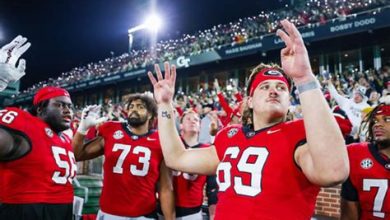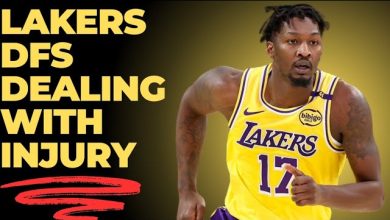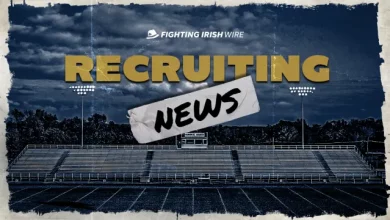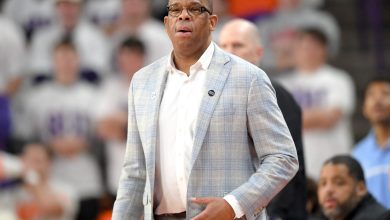The $10 Billion Lakers: How Mark Walter’s Diverse Holdings May Influence Decisions
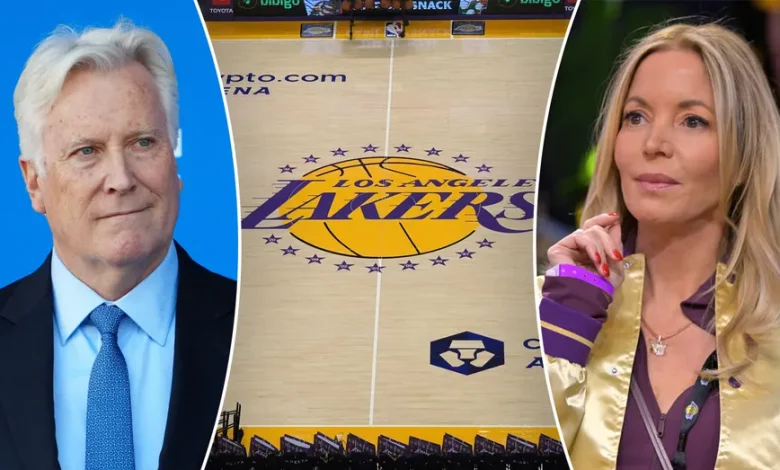
The recent, groundbreaking acquisition of a majority stake in the Los Angeles Lakers by Mark Walter, valuing the franchise at a staggering $10 billion, signals a monumental shift in the landscape of one of the NBA’s most iconic teams. This record-breaking sale, the largest ever for a professional sports franchise globally, not only highlights the immense financial power now at the Lakers’ disposal but also brings into sharp focus how Walter’s diverse portfolio of sports holdings could profoundly influence the team’s future decisions.
Mark Walter, a renowned billionaire investor and CEO of Guggenheim Partners (which manages over $300 billion in assets), is far from a newcomer to sports ownership. His existing sports empire, spearheaded by the immensely successful Los Angeles Dodgers, already positions him as a major force. His portfolio extends to the WNBA’s Los Angeles Sparks, a significant stake in Premier League club Chelsea, the Professional Women’s Hockey League (PWHL), and even a Formula 1 team (Cadillac F1, through TWG Motorsports). This vast and varied experience across different leagues and sports disciplines suggests a unique approach to management and strategy that could soon permeate the Lakers organization.
A New Era of Financial Muscle and Aggression
One of the most immediate and impactful influences of Mark Walter’s ownership will undoubtedly be the Lakers’ financial approach. Under the Buss family’s control, particularly in recent years, the Lakers have sometimes been perceived as hesitant to consistently spend into the luxury tax, or to push the boundaries of the NBA’s financial rules. While they have made significant investments for star players, the sheer scale of Walter’s wealth and his proven willingness to spend lavishly for talent with the Dodgers signals a potential shift.
The Dodgers, under Walter’s leadership since 2012, have become synonymous with aggressive spending to acquire elite talent. Their willingness to commit record-breaking contracts, such as the $700 million deal for Shohei Ohtani, speaks volumes about their “win-at-all-costs” mentality. This philosophy, if fully implemented with the Lakers, could mean:
- Consistent Luxury Tax Payments: The NBA’s luxury tax is designed to penalize teams that spend excessively on player salaries. For a franchise like the Lakers, which often attracts superstar talent, consistently exceeding the salary cap and paying the luxury tax could become a norm, rather than an exception. This allows for deeper rosters, greater flexibility in retaining key players, and the ability to attract top-tier free agents.
- Investments Beyond Player Salaries: Walter’s influence might extend to greater investments in coaching staff, sports science, player development infrastructure, and analytics departments. The Dodgers have invested heavily in these areas, believing that marginal gains across various departments contribute to overall success.
- Long-Term Vision and Stability: The $10 billion valuation and Walter’s deep pockets suggest a long-term commitment to the Lakers. This financial stability can foster patience in player development and coaching decisions, allowing the organization to build sustainable success rather than chasing short-term fixes.
Leveraging Cross-Sport Synergies: The Dodgers Blueprint
The most apparent and immediate influence will likely come from the Lakers’ new direct ties to the Los Angeles Dodgers. Mark Walter’s success with the Dodgers provides a clear blueprint for how he operates a championship-caliber sports organization. The integration of personnel, strategies, and even philosophical approaches across these two iconic Los Angeles franchises is a highly anticipated outcome.
- Personnel Movement (e.g., Lon Rosen): As reported, the potential involvement of Lon Rosen, the Dodgers’ Executive Vice President and Chief Marketing Officer, in Lakers decision-making is a prime example of this synergy. Rosen’s extensive history with both the Lakers and Dodgers, coupled with his strong relationships with Jeanie Buss and Magic Johnson, makes him an ideal bridge figure. His expertise in marketing, brand management, and business operations – honed through years of revitalizing the Dodgers brand – could be invaluable to the Lakers. This is not just about moving executives; it’s about sharing best practices in fan engagement, digital strategy, and commercial partnerships.
- Analytics and Data-Driven Decisions: The Dodgers have been at the forefront of baseball analytics. While basketball analytics differ, the overarching philosophy of using data to inform player acquisitions, game strategies, and injury prevention could be significantly enhanced within the Lakers organization. Walter’s emphasis on data-driven approaches from his financial background is likely to transcend his sports investments.
- Fan Engagement and Community Initiatives: Both the Dodgers and Lakers are pillars of the Los Angeles community. Walter’s ownership of multiple L.A. sports teams (Dodgers, Sparks, now Lakers) provides an unprecedented opportunity for integrated community outreach and fan engagement initiatives across different sports, potentially fostering a deeper connection with the entire L.A. sports landscape.
- Brand Building and Global Reach: The Lakers are a global brand, but the Dodgers’ success in international markets and their innovative marketing strategies could be adapted and scaled for the NBA. Walter’s ownership of Chelsea FC further extends his global sports footprint, potentially creating unique cross-promotional opportunities and brand-building initiatives that tap into diverse fan bases worldwide.
The Jeanie Buss Dynamic: Continuity with a New Partner
A critical aspect of this transition is the stated intention for Jeanie Buss to remain as the Lakers’ governor and continue to run the team for “at least a number of years.” This suggests a partnership, rather than a complete overhaul. Walter’s previous minority stake in the Lakers (27% acquired in 2021) allowed him to build a relationship with Buss and the existing leadership. Magic Johnson’s strong endorsement of Walter, citing his competitive nature and commitment to winning, further reinforces the idea of a cohesive transition.
However, the dynamics of control will inevitably shift. While Buss remains the face of the franchise and governor, the ultimate financial power and strategic direction will reside with Walter as the majority owner. This dynamic will require careful navigation to ensure alignment between the traditional Lakers culture and Walter’s vision for his broader sports empire. Comparisons have already been drawn to Mark Cuban’s sale of the Dallas Mavericks, where Cuban retained basketball operations control but saw significant changes. The key for the Lakers will be how effectively Buss and Walter can align their visions and leverage each other’s strengths.
Influence from Other Holdings: A Broader Perspective
Beyond the Dodgers, Walter’s diverse sports holdings offer unique perspectives that could subtly influence Lakers decisions:
- WNBA’s Los Angeles Sparks: Ownership of a WNBA team demonstrates a commitment to women’s sports and potentially provides insights into grassroots development, community engagement, and tapping into diverse fan demographics that could inform the Lakers’ broader strategy.
- Chelsea FC (English Premier League): Operating a top-tier global football club like Chelsea exposes Walter to international business practices, global scouting networks, and different fan cultures. These experiences could provide a broader, more global perspective on talent acquisition and brand expansion for the Lakers.
- Billie Jean King Cup and Professional Women’s Hockey League (PWHL): These investments highlight a commitment to the growth of various sports, particularly women’s professional leagues. This diverse experience could inform the Lakers’ approach to sport development, fan engagement, and possibly even organizational structure.
- Cadillac Formula 1 Team: This foray into motorsports, a highly technical and data-intensive sport, could reinforce the importance of cutting-edge technology, engineering, and rapid decision-making in a high-stakes environment. While seemingly disparate from basketball, the underlying principles of optimizing performance through data and innovation are universal.
Potential Challenges and Considerations
While the potential benefits are significant, integrating such a diverse sports portfolio into the Lakers’ decision-making could also present challenges:
- Balancing Priorities: Mark Walter now has significant investments and responsibilities across multiple high-profile sports entities. Ensuring that each organization receives adequate attention and resources will be crucial.
- Maintaining Lakers Identity: The Lakers have a rich, distinct history and culture deeply rooted in Los Angeles. While Walter aims to enhance the franchise, it will be important to maintain that unique identity and not dilute it through over-integration with other holdings.
- NBA League Rules and Culture: Each sports league has its own unique rules, collective bargaining agreements, and operational norms. While Walter’s experience is broad, adapting to the specifics of the NBA’s landscape will be key.
In conclusion, Mark Walter’s $10 billion acquisition of the Los Angeles Lakers is more than just a financial transaction; it’s a strategic move that brings a new level of financial power, diverse sports management experience, and a proven winning philosophy to the franchise. The influence of his existing sports empire, particularly the Los Angeles Dodgers, is expected to manifest in increased financial aggression, enhanced analytics, innovative brand building, and potentially, a more integrated approach to overall sports operations. While Jeanie Buss remains a crucial figure, the Lakers’ future decisions will undoubtedly be shaped by the broader, multi-sport vision of their new majority owner, Mark Walter, as he aims to usher in another era of championship success for the purple and gold.



